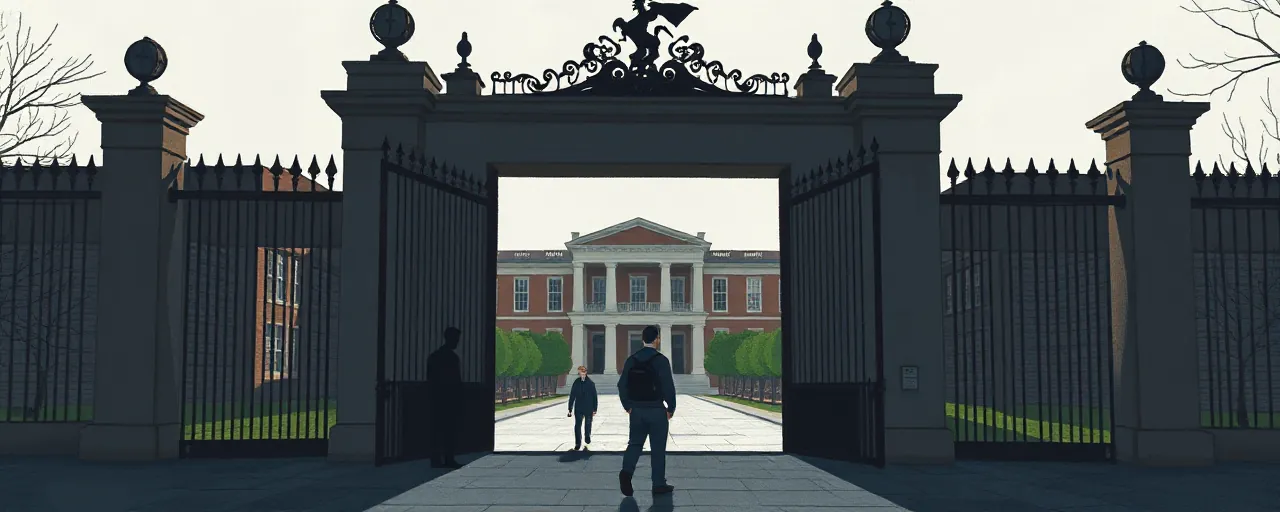A Chill on Campus
Across California’s sprawling university campuses, a quiet fear has taken root. Students, many thousands of miles from home, now glance over their shoulders before speaking out. The reason? An executive order from President Trump that has led to nearly 100 visa revocations in the state alone, targeting international students for their political views. This isn’t just a policy shift; it’s a deliberate strike at the heart of free expression, one that threatens to unravel the vibrant tapestry of ideas that defines higher education.
Attorney General Rob Bonta, leading a coalition of 19 states, has stepped into the fray, filing an amicus brief to challenge what he calls an unconstitutional overreach. The brief argues that these revocations, based on vague ideological grounds, violate the First Amendment rights of noncitizens, rights long affirmed by the Supreme Court. For students at places like Stanford and the University of California, the message is clear: dissent comes with a cost, potentially deportation.
This isn’t abstract legalese. It’s personal. Imagine a computer science major from India, years into her degree, suddenly detained for joining a campus rally. Or a biology researcher from Nigeria, his visa yanked for a social media post. These aren’t hypotheticals; they’re the lived realities of hundreds of students nationwide, caught in a policy that prioritizes political loyalty over academic freedom.
The Stakes of Silence
International students aren’t just faces in lecture halls; they’re economic powerhouses. Last year, they pumped $43.8 billion into the U.S. economy, sustaining over 378,000 jobs. In California alone, their tuition and living expenses fuel local businesses, from coffee shops to apartment complexes. Beyond dollars, they drive innovation, with over half pursuing STEM fields like engineering and computer science. Their absence would leave a gaping hole in research labs and global competitiveness.
Yet the administration’s policy doesn’t just harm students; it wounds the nation. By targeting those who speak out, it stifles the very discourse that makes universities engines of progress. Historical parallels are hard to ignore. During the Cold War, ideological deportations silenced voices like Emma Goldman’s, not for crimes but for ideas. Today’s visa crackdowns echo that era, swapping anarchists for pro-Palestinian activists or critics of U.S. policy, as seen in cases like Mahmoud Khalil’s detention for his advocacy.
Opponents of the coalition’s stance argue that national security justifies these measures, claiming ideological vetting prevents foreign influence. But this argument crumbles under scrutiny. No evidence links these students’ speech to tangible threats. Instead, the policy punishes expression, a tactic more akin to authoritarian regimes than a democracy. The Supreme Court has long held that free speech extends to noncitizens; undermining that precedent risks a broader erosion of rights for all.
The human toll is staggering. Over 80 universities, from Harvard to Texas A&M, report visa cancellations, often without explanation or recourse. Students face mid-semester deportations, their investments in education evaporating. This chaos isn’t incidental; it’s a feature of a policy designed to intimidate. As Bonta’s brief notes, the harm to states, from economic losses to diminished academic prestige, is irreparable.
What’s at stake isn’t just a few hundred visas. It’s the soul of higher education, where ideas clash and grow. If students self-censor, fearing detention, we lose the debates that shape tomorrow’s solutions. The administration’s defenders might call this collateral damage in a quest for order, but it’s a calculated blow to the diversity of thought that keeps America dynamic.
Fighting Back
Bonta and his coalition aren’t standing idly by. Their brief demands a preliminary injunction to halt these deportations, arguing they violate not just constitutional protections but the public interest. States like New York and Massachusetts, home to over 640,000 international students, join California in highlighting the policy’s ripple effects. These students don’t just fund jobs; they enrich classrooms, challenging peers to think globally.
The fight has deeper roots. Bonta’s office has battled similar overreaches before, from defending birthright citizenship to challenging early terminations of Temporary Protected Status for Venezuelans and Haitians. Each time, the goal remains constant: protect the rights of those who call this country home, even temporarily. This latest push aligns with that mission, framing visa holders as integral to the nation’s fabric, not as threats to be vetted for their beliefs.
Skeptics might argue that immigration enforcement inherently involves tough choices, that presidents have broad authority over borders. Yet this policy sidesteps due process, offering students no meaningful chance to contest revocations. It’s not about security; it’s about control, a point Bonta’s coalition hammers home. The courts, they insist, must act swiftly to preserve the principles that make America a beacon for scholars worldwide.
A Call to Preserve Freedom
The battle over these visas is more than a legal skirmish; it’s a test of what America stands for. Will we remain a place where ideas can flourish, regardless of who voices them? Or will we let fear and politics dictate who gets to speak? The answer lies in the courage of leaders like Bonta, who refuse to let constitutional protections bend under executive whim.
For every student facing deportation, for every campus gripped by uncertainty, the stakes couldn’t be higher. Their voices, their contributions, their very presence strengthen this nation. To silence them is to diminish us all. The court must act, and act now, to restore the promise of free speech for everyone who dares to dream here.
